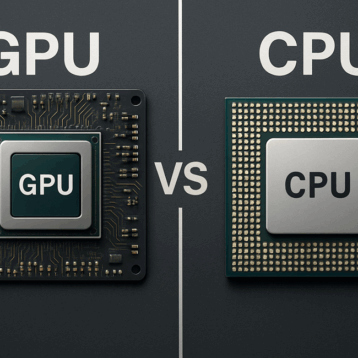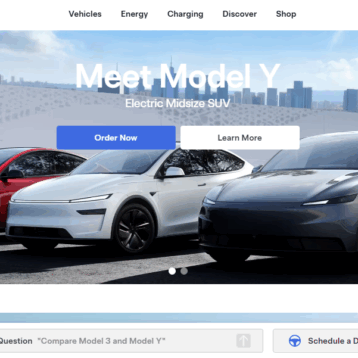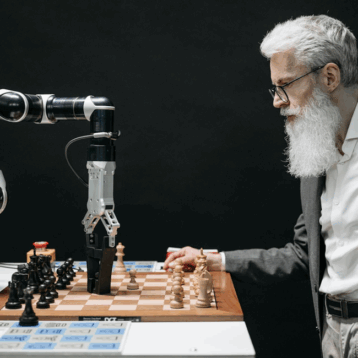The retail sector continues to evolve, and the future of AI in retail is driving much of this change. Retail artificial intelligence now goes beyond data-crunching; it directly influences how products are curated and how consumers interact with brands. This technology offers new ways for businesses to adjust to shifting market demands, streamline store operations, and deliver accurate recommendations.
By looking closer at how AI is currently used in retail and shopping, we can see where it might lead next, shaping everything from customer service to inventory management.

Personalization and Customer Experience
AI and retail go hand in hand when it comes to improving customer experiences. By analyzing shopper behavior, AI systems in the retail industry can suggest products that align with individual preferences. This personalization extends from online recommendations to in-store displays, shaping how customers view and buy items. AI in shopping also helps streamline customer service by enabling chatbots and virtual assistants to answer questions, facilitate returns, and provide real-time support. Through these methods, AI in retail stores fosters stronger connections between brands and consumers, placing relevant products at the forefront of the shopping journey.
Inventory Management and Predictive Analytics
Retail artificial intelligence is also pivotal in managing stock levels and predicting future demand. By using AI in retail to analyze consumer habits, historical data, and market trends, businesses can improve how they maintain inventory. This helps reduce waste, prevent stockouts, and keep products flowing smoothly through the supply chain. Predictive analytics in the retail industry further refines restocking strategies by identifying shifts in buying patterns as they happen. This level of insight strengthens the link between store operations and customer needs, ensuring that the right products are ready at the right time.
For deeper expertise on implementing these AI-driven approaches, you can check out WiserBrand. Their services can be tailored to unique retail requirements, ensuring a balanced fusion of technology and practical solutions.
AI-Powered Store Layout and Robotics
AI in retail stores goes beyond product recommendations and inventory monitoring. It increasingly influences how retailers design physical spaces and incorporate robotics to handle repetitive tasks. By analyzing customer traffic and historical sales, AI systems can suggest optimal shelf placement or rearrange aisles to highlight popular items. Some retailers use robots to scan shelves, identify stockouts, and inform employees before items run low. Others explore automated checkout stations to streamline the shopping process. Below are a few key benefits retailers can achieve through AI-driven store layout and robotics:
- Optimized Floor Plans: Data-driven insights help determine where to position products, speeding up the path from entry to purchase.
- Efficient Shelf Stocking: Robots can quickly identify missing items, reducing manual audits and ensuring key products remain available.
- Reduced Checkout Times: Automated solutions help process customers faster, minimizing lines and improving overall satisfaction.
- Real-Time Analytics: Continuous tracking of in-store activity allows teams to adjust operations on the fly, staying aligned with shopper behavior.
Balancing Data and Ethical Considerations
AI in the retail industry is evolving rapidly, but harnessing data also comes with responsibilities. Retailers must ensure they handle customer information securely and transparently, following regulations that protect consumer privacy. Ethical guidelines are essential when deploying AI in shopping, preventing biases in data sets and maintaining trust. By acknowledging these challenges, businesses can implement AI-driven strategies that are respectful of user data and focused on fair outcomes. Moving forward, the future of AI in retail will hinge on how well brands can integrate intelligent systems without compromising privacy or consumer confidence.
Looking Ahead
As AI technology advances, using AI in retail will continue to unlock innovative paths for businesses to adapt and flourish. The future of AI in retail may feature even more immersive in-store experiences, where augmented reality could help shoppers visualize how products fit into their lifestyles before making a purchase. AI and retail could then merge with virtual fitting rooms, allowing customers to try on outfits via digital avatars and receive real-time suggestions based on their measurements or style preferences.
Additional developments include dynamic pricing, where machine learning models continuously analyze consumer demand, competitor pricing, and seasonal factors to recommend the most effective price point. This practice can help maximize profits while ensuring customers feel they are getting fair value. At the same time, real-time inventory updates across multiple channels keep both store employees and online shoppers informed about product availability, reducing out-of-stock scenarios and enhancing the overall shopping journey.
Looking further ahead, AI-driven voice commerce may integrate with in-store kiosks or home devices, enabling customers to receive answers to product questions and place orders instantly. By combining these technologies, retailers can achieve greater personalization across all touchpoints without losing operational efficiency. Balancing the cutting-edge with practicality and privacy considerations allows retailers to meet evolving consumer expectations and remain resilient in a fast-paced market.
Final Words on The Future of AI in Retail
AI in the retail industry is poised to remain a central force shaping how businesses interact with customers and manage back-end operations. From personalized product suggestions to ethical data usage, the path ahead involves adapting these technologies in ways that benefit both retailers and their audiences. By focusing on practical innovations and transparent data practices, the future of AI in retail can help companies stay competitive in an ever-changing market.
FAQ
Q: How does AI benefit retail businesses of all sizes?
A: AI can simplify tasks like inventory tracking and personalized marketing. Small retailers may use AI tools for automated customer support, while larger operations rely on predictive analytics for demand forecasting.
Q: Are AI-driven store layouts only for major chain stores?
A: Not necessarily. Even smaller shops can apply AI insights to make data-based decisions about how and where products are displayed.
Q: What safeguards should be in place for AI in retail?
A: Transparent data collection and compliance with privacy regulations are essential. Clear policies help maintain consumer trust while optimizing AI-driven processes.
Q: Will AI replace the human element in retail?
A: AI is designed to assist and enhance human roles, not eliminate them. Employees still add value by handling complex tasks, providing personal interaction, and ensuring smooth operations.










